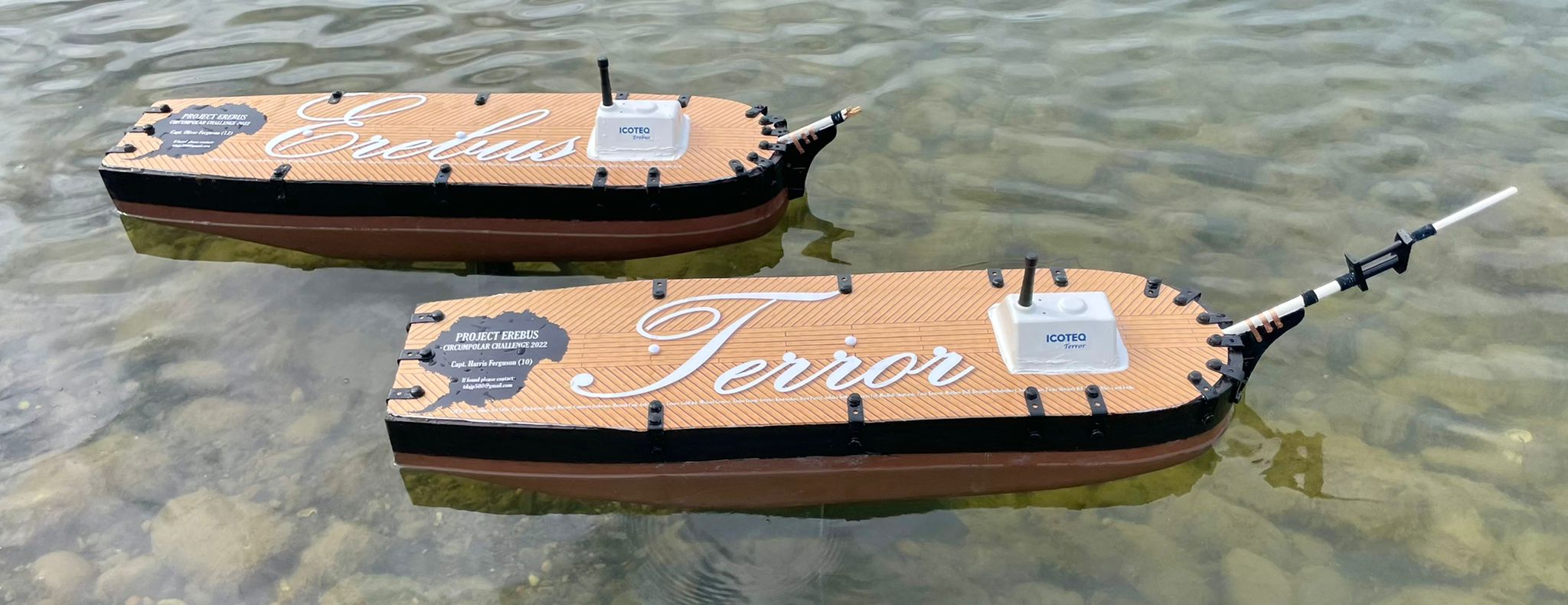Bath-based wireless technology specialists Icoteq are supporting two young Scottish brothers, aged 10 and 12, in an epic 20,000 kilometres voyage to send two replica ships to circumnavigate Antarctica in what is thought to be a world first.
The firm has designed tracking and monitoring devices for the vessels that will report back via satellite the location of each boat throughout the journey and sensor data measuring sea temperature and ocean pH – both of which can be used as markers for climate change. Images from an integrated camera will also be sent once per month.
The metre-long scaled wooden replicas of 19th century warships, HMS Erebus, and HMS Terror, will drift through the Southern Ocean following the circumpolar current around the coastline of Antarctica in the expedition known as Project Erebus.
“We were contacted by the boys’ father MacNeill to ask if we could advise him on the best tracker to buy online to fit to the boats,” said Craig, who founded Icoteq in 2013. “We were so inspired by his sons’ mission, we offered to build the technology for them.
“We developed a custom tracking and data monitoring device that incorporates a GPS receiver, air and ocean temperature probes, a pH probe to measure ocean acidity and a forward-facing camera. Position and scientific data will be sent back to us using an ARGOS satellite communication link.
“The boys will hopefully provide inspiration to other children and families. They’re both extremely hands on and have worked hard to make this happen. They built the boats as far as possible by themselves – and where they have had to get professional help, it’s all been given for free.”
Craig said, if successful, the project could show that low-cost sensors, such as those used on Ollie and Harry’s expedition, could be a viable way to help monitor climate change.
“This is currently done using expensive complex equipment. If low-cost sensors combined with citizen science, can contribute to the gathering of important scientific data, it could open the doorway for larger scale monitoring at a fraction of the price.”
Icoteq – whose previous work includes developing a new generation of satellite tracking equipment aimed at sea turtles and a plastic pollution tracker for a National Geographic-backed expedition – will feature a dedicated Erebus page on its website with a map that will track the two boats, along with a monthly camera image sent via satellite. https://www.icoteq.com/project-erebus/
“It’s like a mission to Mars,” said Harry Ferguson (10). “We cannot rescue the boats once they are launched so we have to plan every detail.”
The vessels are due to leave the UK for South Georgia in the Southern Atlantic and will be handed over to the territory’s government who will take the boats on board a fisheries patrol vessel from which they will be launched 160 kms north into the Antarctic Circumpolar Current.
Project Erebus is the latest adventure for Ollie and Harry who previously set the world record for the longest distance travelled at sea by a toy boat with their Playmobil pirate ship ‘Adventure’ which sailed 6072km to the Caribbean as part of their list of 500 adventures.
They went on to smash their own world record last year with a second toy ship, that managed to sail over 15,000 km through the Caribbean and the Gulf of Mexico.
ENDS
15 June 2022

